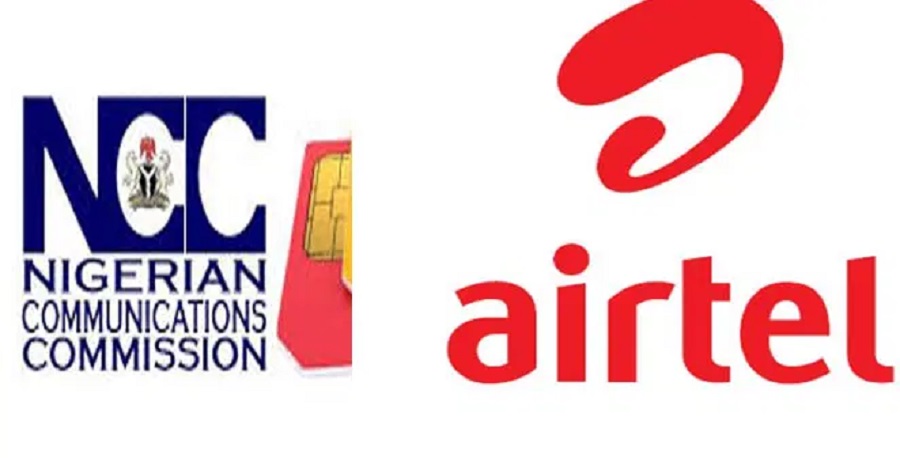Telecom
NCC to Tighten Noose on Call Refiling, Masking & Sim-Box Fraud

Nigerian Communications Commission (NCC) said it has zero tolerance for ‘Communications Fraud’ in the market.
Communications Fraud entails the use of telecommunications products or services with the intention of illegally acquiring money from, or failing to pay, a telecommunication company or its customers.
Speaking at the stakeholders’ forum convened by the Commission to present cost based study for the determination of mobile voice termination rate, Professor Umar Danbatta, executive vice chairman, said that is working to ensure sanity in the sector, especially with regards consumer products.
A comprehensive report of a seminal study undertaken by PriceWaterhouseCoopers for the telecommunication industry in Nigeria with a thematic focus on cost based determination of mobile voice termination rate, was presented to industry stakeholders at the Nigerian Communications Commission Head Office in Abuja, during the week.
Prof. Danbatta however, solicited assistance, understanding and collaboration to deliver on project objectives.
The EVC remarks delivered by Miss Josephine Amuwa, director policy competition and Economic Analysis at the Commission, called on stakeholders to supply industry statistical data promptly because of its centrality in the determination of appropriate interconnection termination rates.
An impeccable and functional interconnection regime is pivotal to enhancing competition and effective regulation.
The imperative of the project evidently found expression in the exponential growth in the number of subscribers, as well as in the volume of traffic on the networks, which are both shaped by the dynamics of technologies, and the existential realities of the global financial markets. Danbatta told the audience which is quite representative of the diversity of the industry.
Importantly, Danbatta noted that NCC has a duty to ensure that interconnection services are fairly priced, non-discriminatory, and reflect the real cost of providing such services in the market.
The EVC said he was quite pleased that the study will among other benefits provide opportunity to thoroughly examine the emergence of grey market activities in the telecoms industry in Nigeria such as call refiling, call masking, and SIM-Box fraud following the introduction of an interim International Termination Rate (ITR) for inbound international traffic.
Call Refiling, according to Wikipedia, is a form of interconnect fraud in which one carrier tampers with CID (caller-ID) or ANI data to falsify the number from which a call originated before handing the call off to a competitor.
“Refiling and interconnect fraud briefly made headlines in the aftermath of the Worldcom financial troubles; the refiling scheme is based on a quirk in the system by which telcos bill each other – two calls to the same place may incur different costs because of differing displayed origin. A common calculation of payments between telcos calculates the percentage of the total distance over which each telco has carried one call to determine division of toll revenues for that call; refiling distorts data required to make these calculations”.
Call Masking one’s telephone number, on the other hand, is simply having the means to either disguise the telephone number or display it as a different number as is the case for many companies who use what are known as non-geographical numbers, while A SIM box fraud is a setup in which fraudsters install SIM boxes with multiple low-cost prepaid SIM cards.
The fraudster then can terminate international calls through local phone numbers in the respective country to make it appear as if the call is a local call.
Accordingly, the Study’s eleven (11) focus areas include developing measures to reduce or eliminate grey markets in the telecoms industry in Nigeria; evaluation of the subsisting interconnect regime; and to determine if there is need for different termination rate for national/domestic and international traffic.
Telecom
Airtel Recommits to Fraud Prevention after NCC’s N104m Fine for SIM Registration Breaches

Airtel Nigeria has restated its commitment to transparency, customer safety, and regulatory collaboration following recent regulatory enforcement by the Nigerian Communications Commission (NCC).

The NCC had served Airtel Nigeria a notice of sanction over some alleged SIM infractions in Kano State and consequently slammed a fine of N104 million on the telecommunications firm.
NCC had in a letter, addressed to Airtel Nigeria Chief Executive Officer, dated May 26, 2025, signed by Chizua Whyte, head, Legal and Regulatory Services, and Mohammed Dari, acting head, Compliance Monitoring and Enforcement, on behalf of Dr Aminu Maida, executive vice chairman, NCC, titled: ‘Notice of Sanction: Non-Compliance with SIM Registration Directive in Kano,’ where the infractions were spelt out.
According to NCC, Airtel infractions include unauthorised SIM registrations using 198 unapproved devices, resulting in 8,275 registrations outside the 281 verified Airtel shops; premature activation of 63 MSISDNs prior to proper SIM registration, contrary to the provisions of the Registration of Communications Subscribers Regulations 2022; failure to conduct effective eyeballing, leading to 407 fraudulent SIM registrations with multiple NINs, contrary to the provision of the Registration of Communications Subscribers Regulations 2022 and failure to provide satisfactory explanation for SIM registrations conducted between 12.00 a.m and 6.00 a.m.
On the matter, the letter revealed that there were some letter exchanges and subsequent meetings on the infractions between the telecom regulator and Airtel, starting from January 12, 2025, March 19, 2025, March 24, 2025, and March 27, 2025, respectively.
Apparently, after investigations and responses from Airtel, the NCC was not satisfied and this led to the fine of N104 million, which was to be paid within seven days from the date the letter was issued.
Specifically, NCC fined Airtel N5 million, N12 million, N81.4 million and N5 million for the infractions respectively.
Reacting, Airtel, expressed appreciation to the NCC for uncovering the infractions, describing the development as a critical opportunity to strengthen internal processes and further align with national security and regulatory expectations
“We thank the NCC for its vigilance and continued support in protecting the integrity of the telecoms ecosystem. Airtel takes these findings seriously and is already implementing corrective measures,” a spokesperson for the company said.
Only recently, Airtel Nigeria’s CEO recently announced that the company is doubling its investment in the country, focusing on network expansion, fiber-to-the-street rollout, 4G/5G deployment, customer care upgrades, and digital infrastructure security.
These investments reinforce Airtel’s long-term vision of building a resilient and forward-looking telecom network that meets the evolving needs of Nigerians.
“Our systems are constantly evolving to stay ahead of scammers and malicious actors,” the spokesperson added. “This is not just about compliance; it’s about our responsibility to the millions of Nigerians who rely on Airtel daily.”
Airtel Nigeria says it will continue to work closely with the NCC and other arms of government to ensure high standards of service and safety for all telecom users nationwide.
Telecom
Kenya Beats Nigeria As the Most Progressive ICT Regulation in Africa

Kenya is celebrating its regulatory ecosystem being ranked as the most progressive in Africa. The International Telecommunications Union (ITU) has ranked the East African country first in its most recent ICT Regulatory Tracker.

ITU’s ICT Regulatory Tracker is an evidence-gathering tool for decision-makers and regulators. It demonstrates the effectiveness of regulatory systems in the age of technology.
The ITU evaluates the design of the national regulatory authority, the scope of the regulatory mandate, the obtaining regulatory environment, and the robustness of the competition framework in member countries.
Kenya received 93 points, up from 92 in 2023, and now leads the continent in best practices for ICT regulations.
Nigeria and South Africa finished second and third, with 92 and 88 points respectively. Malawi, Egypt, Rwanda, Morocco, Uganda, Burkina Faso, and Senegal complete the top 10 list.
Globally, Kenya was ranked 20th out of 194 countries covered.Italy led the rankings, with 100 points.
The regulator, Communications Authority (CA) of Kenya, said the achievement underscored Kenya’s commitment to creating a robust, technology-neutral regulatory environment that supports innovation, affordability and access.
Steve Isaboke, permanent secretary for broadcasting and telecommunications, visited CA Centre in Nairobi following the announcement on Thursday.
“The ranking is a clear testament of the excellent work that CA has done in spearheading Kenya’s digital transformation and driving digital access for all,” he said.
“After 25 years, CA’s regulatory regime has attained maturity, and gained global recognition. This ranking shows that the CA staff and leadership are executing their work diligently.”
Telecom
MTN’s Female Leadership Surges to 41.4%, Doubles Industry Average

MTN Nigeria Communications PLC has announced a significant increase in female representation within its leadership, with women now making up 41.4% of its workforce, a notable rise from 38.7% in 2023.

This figure reportedly doubles the industry average, positioning MTN Nigeria as a frontrunner in gender diversity within Nigeria’s ICT sector.
The company’s recently released 2024 Annual Report highlights its sustained commitment to workplace inclusion and gender equality, aligning with its “Ambition 2025” strategy. Female representation within the executive management team has reached approximately 46.7%.
MTN Nigeria attributes this progress to dedicated initiatives aimed at empowering women professionally. These include the “Women in Tech” programme, which provides targeted upskilling in high-demand fields such as Cloud Computing, Software Engineering, AI/ML, Data Science, and Cyber Security.
The “MTN Y’ello Mums Internship Programme” also supports young mothers in their transition back into the corporate world after career breaks.
Odunayo Sanya, executive director of the MTN Foundation, was recognised as the CSI Personality of the Year at the Nigeria Tech Innovation & Telecoms Awards (NTITA), further underscoring the company’s impactful social initiatives.
Additionally, Uto Ukpanah, the company secretary, received the inaugural Global Corporate Secretary of the Year Award from the Corporate Secretaries International Association (CSIA).
Speaking at a recent conference, Odunayo Sanya, emphasised the importance of balancing profitability and sustainability equation, saying, “Businesses today need to be purpose-driven. While the soul of business is profitability, it is not profitability alone that should matter to stakeholders.”
Uto Ukpanah, added, “Showcasing our corporate values and ethos to the world opens the door for greater collaboration with other organisations, as we believe there’s a lot to learn when we all come together. Governance continues to evolve. The challenges today are not the same as they were 10 years ago. Greater accountability is expected, and companies can only continue to do better.”
The company’s broader efforts in diversity and inclusion have been acknowledged with multiple accolades, including the Corporate Responsibility Award. MTN Nigeria also received the “Employer of the Year” award at the 4th Edition of the Nigeria Employers’ Consultative Association (NECA) Employers’ Excellence Awards.
Karl Toriola, CEO of MTN Nigeria, in the report, reiterated the company’s commitment to building a purpose-driven organisation, emphasising that its success is intrinsically linked to its people and their dedication to a shared vision.
“Since we initiated our culture transformation journey in 2021, our culture transformation has significantly enhanced employee engagement and organisational cohesion. It’s directly strengthened our ability to deliver outstanding business performance and drive sustainable long-term value for all our stakeholders.”

 Telecom2 days ago
Telecom2 days agoTelcos Threaten to Disconnect Banks over Misinformation on New USSD Charges

 Telecom2 days ago
Telecom2 days agoMTN Nigeria Plans N900Bn in Service Upgrade

 General News2 days ago
General News2 days agoJumia Marks 13 Years of E-Commerce Innovation and Impact in Nigeria

 Telecom2 days ago
Telecom2 days agoTelecom Regulators in Africa Chart New Course for a Data-driven Future

 Broadcasting2 days ago
Broadcasting2 days agoNetflix Hikes Subscription Fees Again in Nigeria over “Market Conditions”

 News2 days ago
News2 days agoAbbas Jega, Ex-AMCON ED, Testifies, Says Arik Never Cooperated With AMCON

 Broadcasting2 days ago
Broadcasting2 days agoNBC, Nigcomsat Launch Satellite Plan to Transform Broadcasting

 E-Financial2 days ago
E-Financial2 days agoNDIC Calls for Inputs to IADI Core Principles for Effective Deposit Insurance
















